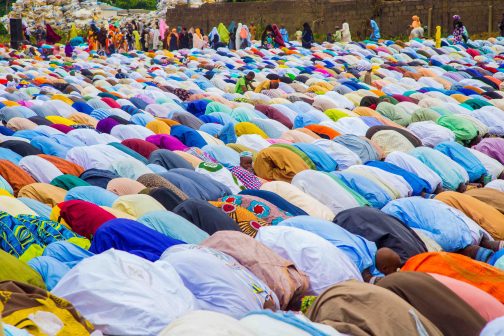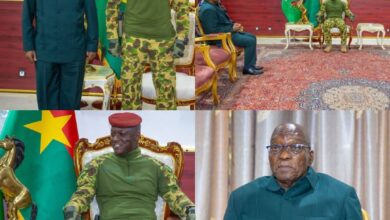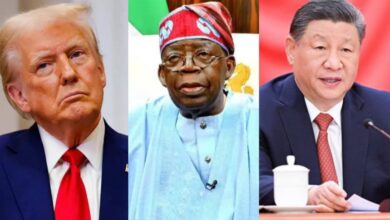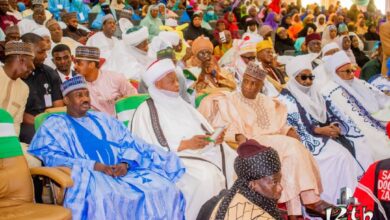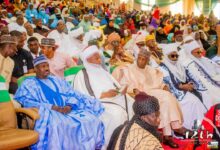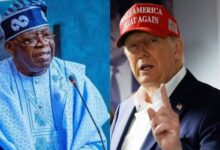CISLAC, WACSOF, TMG demand quick election in Senegal, want ECOWAS sanctions on Niger, others lifted
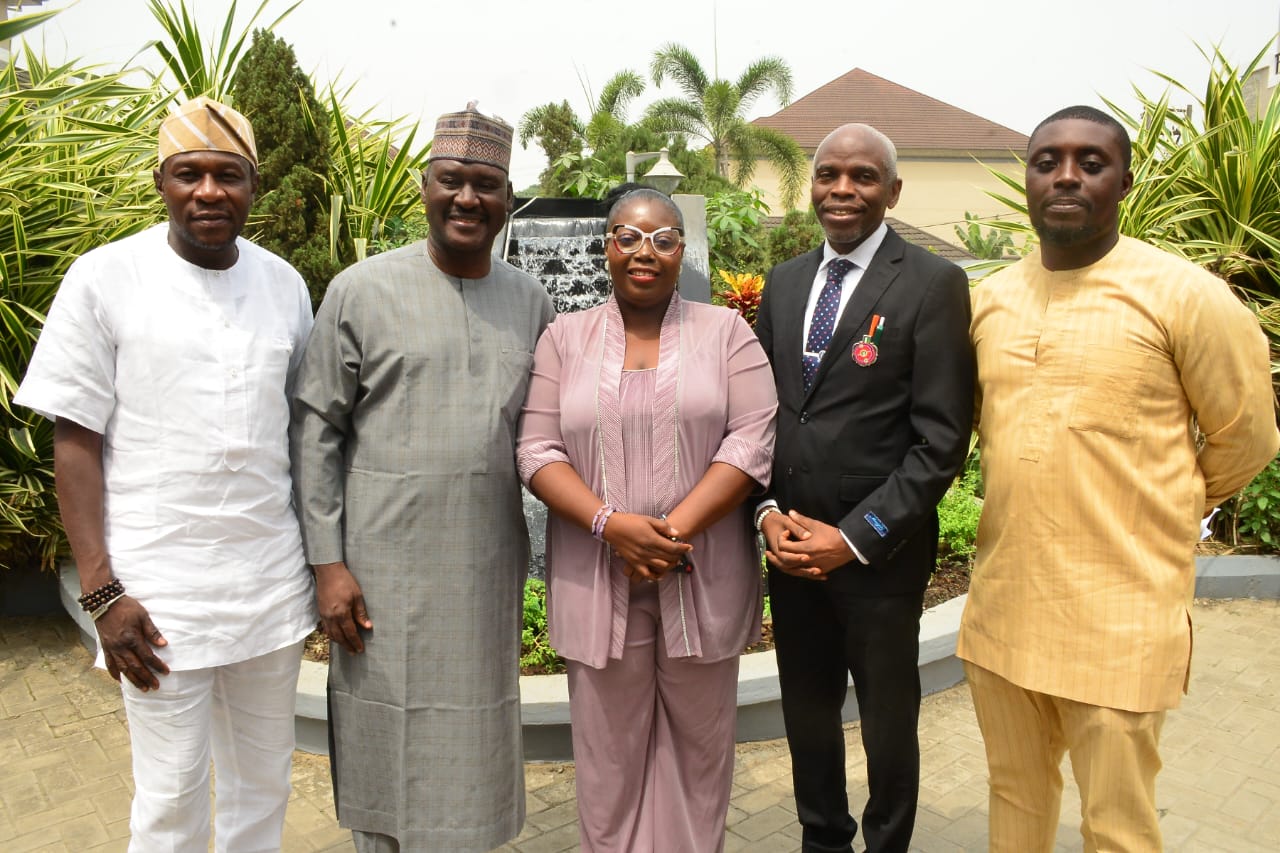
*As CSOs and Media Interactive Meeting makes observations, recommendations for solution
By BASHIR ADEFAKA
As the political impasse among Economic Community of West African States (ECOWAS) member countries now assumes a state of looming disintegration, some Civil Society Organisations and media operating West Africa, especially in Nigeria, say it is time for leaders of the bloc to get to work with dialogue as means of mitigating the challenges and ensuring speedy restoration of democratic order in the affected Republics of Niger, Mali and Burkina Faso.
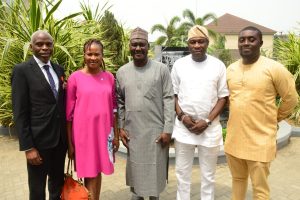
Putting a stop to the problem was what the organisations, notably the Civil Society Legislative Advocacy Centre (CISLAC), West African Civil Society Forum (WACSOF) and the Transition Monitoring Group (TMG), meant to achieve with their “CSOs and Media Interactive Meeting”, held in Lagos on Monday February 5, 2024 during which the sanctions imposed on Niger, Mali and Burkina Faso were said not to be any longer fashionable as they needed to be lifted for enviable path to solution.
Other stakeholders including the West Africa Network for Peacebuilding (WANEP-Nigeria), Nigeria Network of NGOs (NNNGOs) and Human and Environmental Development Agenda (HEDA) and several media executives also participated in the conversations wherein problems militating against ECOWAS unity and progress were discussed, observations made and recommendations listed out for actionable decisions to be taken by regional leaders.
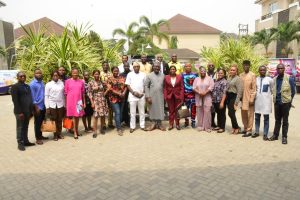
In his welcome address at the meeting, Executive Director of CISLAC and Chairman TMG, Mallam Auwal Ibrahim Musa (Rafsanjani), expressed the worries of Civil Society Organisations working in Nigeria and West Africa and their observations as to the threats posed to unity of ECOWAS by the recent developments within the region, where some member states began to consider withdrawl from the union as inevitable option.
Niger, Mali and Burkina Faso were specific about what they called their “sovereign decision”: that ECOWAS, established in 1975 to protect economic and collective interests of respective member states, not only now failing to be of any benefit but also to them but are now constituting a threat to their sovereignty and national security.
Although the regional authority acknowledged importance of the three aggrieved countries as an integral part of the union, Nigerian presidency’s trivialising statement – putting them off as already suspended members to suggest their pull-out is inconsequential – may have worsened the situation. But the African Union (AU) took a stand calling the ECOWAS leaders to order as it pointed out their reason for withdrawal. Reportedly, according to the AU, “they said your activities are posing a threat to their sovereignty and you must look at it and dialogue with them with a view to resolving the issues.”
In his address to the interventionist media interactive meeting in Lagos on Monday, the CISLAC executive director, Rafsanjani, said, “It is worthy of note to emphasize that ECOWAS has come a long way in fostering regional integration by building a community of people which is focused on economic, political and social developments.
“These civil society organisations which include the West African Consultative Forum (WACSOF), Transition Monitoring Group (TMG), Civil Society Legislative Advocacy Centre (CISLAC) and others reiterate CSOs support for regional integration in West Africa, especially taking into cognisance the benefits of such to the region.
“Among other things, a more integrated West Africa is required to defeat the violent extremism, terrorism and other trans-border crimes currently bedevilling the region. There is no gainsaying that the measures undertaken by the Community to promote and consolidate cooperation among Member States on criminal matters such as the protocol on Mutual Assistance on Defense Matters and the Convention on Small Arms and Light Weapons have greatly contributed to a regional effort at combatting terrorism and crimes in the region. Therefore, having a united ECOWAS is important to defeating terrorism and other organised crimes in the region.
“As civil society organisations in Nigeria and West African region, we are resolute to working to ensure ECOWAS stays focused on promoting genuine democratization processes in the region. It is on this backdrop that this CSOs interactive meeting is holding to put out a common position which emphasizes more political, economic and security stability for West Africa.
“On this note, CSOs urge politicians in the region to desist from truncating democracy at the detriment of the people. It is disturbing to see the trend of events where politicians abuse democratic processes and ascribe to themselves arbitrary powers over constitutional governance. These trends are against the critical pillars of ECOWAS Vision 2050.
“In line with this, the CSOs in Nigeria and West Africa condemn the indefinite postponement of the February 25th 2024 election in Senegal without consulting widely with the people.
“This type of action is viewed as abuse of power and must be rejected in the region as it is the type of undemocratic behaviour capable of instigating military junta. It is therefore important for the government of Senegal to immediately fix a new date for the election to hold,” Rafsanjani said, adding that CSOs working in Nigeria and other parts of West Africa are interested in ensuring economic development that are capable of reducing the poverty and infrastructural deficit in the region.
He promised the continued support, therefore, of the CSOs for regional stability in order to boost the economic viability of West Africa, even as he said, “We also categorically call for the removal of sanctions against the military junta in Niger, Mali and Burkina Faso.”
Rafsanjani, however, appealed to the military administrations in the affected countries not to transform themselves into civilian presidenncy so as not to give the wrong notion that they set out to upstage democratically elected administrations in their countries for selfish reasons.
He urged political leaders in the region to desist from truncating election process to enable stability since, according to the findings of this online newspaper, one of the root causes of military interventions in the affected countries was undemocratic behaviours of the political leaders.
According to him, ECOWAS must come out, decisively, against rigging of elections and and manipulative that leaders do to earn themselves tenure elongation within its bloc, even as he made a case for situation where the union would now move from being called ECOWAS States to ECOWAS of the peoples.
The Transition Monitoring Group chairman wondered that not much of programmmes, activities and policies of ECOWAS were known to citizens and thus encouraged the citizens to not only acquaint themselves with opportunities that are inherent within the bloc for them but take advantage of same for their own benefits, which include ECOWAS Court, ECOWAS Parliament among others.
Resource persons, who made presentations at the meeting included Mr. Solomon Adoga, Senior Program Officer, TMG; Mr. Kop’ep Dabugat, General Secretary, West African Consultative Forum (WACSOF) and Ms Ezeobi Chiemelie, Features Editor, This Day Newspaper.
In his presentation titled “ECOWAS Vision 2050”, Mr. Solomon Adoga said it would be impossible to start conversation about ECOWAS Vision 2050 in isolation of or without first talking about ECOWAS Vision 2020 in retrospect, adding that, “ECOWAS Vision 2020 has been investigated and so it has its own achievements” among which were President Muhammadu Buhari’s approval for construction of railway from Nigeria to Maladi in Niger Republic, which Nigerians kicked against but remains an effort at achieving a project based on the ECOWAS Vision 2020 agenda.
Adoga listed five pillars of Vision 2050 to include Peace, Security and Stability; Governance and Rule of Law; Economic Integration and Interconnectivity and rounded up his presentation with a quote to remember as aspiration of the vision: “A fully integrated Community of people, living in peaceful and prosperous region, with strong institutions respectful of fundamental rights and freedoms, striving towards inclusive and sustainable development.”
Mr. Kop’ep Dabugat of WACSOF, in his own presentation titled, “CSOs Engagement within ECOWAS to support Regional Integration”, was not happy that since ECOWAS was created in 1975, there is no place in its treaty that allows for civil society engagement until after some efforts they reluctantly allowed them with only two of such groups, which he said are the Civil Society and Democracy Development , and the International Alert based in Kaduna both in Nigeria.
“ECOWAS must have a more consultative process of its programmes. It needs to find na way of enlighten its citizens. It is high time we need to have a genuine conversation about democracy. We have seen people talk about whether democracy is suitable for Africa. Of course, democracy is suitable for Africa because democracy provides mechanism for monitoring progress. We need to have serious conversation how to make democracy work for Africa,” he said.
In her presentation, Ms Ezeobi Chiemelie talked about why ECOWAS will never unite and she premised that on allegiance to the West. “You need a respected leader to chair ECOWAS. You cannot be sanctioning Niger, Mali and Burkina Faso over military coups and a president has done unconstitutional things in Senegal, you said nothing,” she said.
However, talking about why Africans must unite, she said, “If Africans were united, there is no way the West would treat us with disdain especially as they did during the COVID-19 when they refused to acknowledge that Africa had its own solution and gave us dress they could not give to their dogs.”
She rounded up with a question “Is there hope?” and she quickly provided an answer saying, “Of course as humans, we can’t but hope that one day, the continent will grab the bulls by the horn and chart a course for a future of prosperity, peace and economic stability.. but with realities on ground, your guess is as good as mine but lets see what ECOWAS 2050 will entail and portend for the continent.”
Observations
In the communiqué, the meeting made five observations produced at the end of the conversations, stating that, “Given the security challenges in the region, the withdrawal of Mali, Burkina Faso and Niger from the ECOWAS will cause set back to the gains of peace and security efforts under the direction of regional authority especially in the fight against terrorism.
“The withdrawal defeats the purpose of regional economic corporation within the ECOWAS bloc including the establishment of an African Continental Free Trade Area. It will adversely affect the life and livelihood of the citizens of West Africa.
“It will further exacerbate corruption, illicit financial flows (IFFs) and drug and human trafficking across the borders
“Democracy in West Africa has become more fragile despite the principles of zero tolerance for unconstitutional change of government, tenure elongation, fraudulent elections and bad governance contained in the 2001 ECOWAS Supplementary Protocol on Democracy and Good Governance and
“The culture of impunity and disregard for the rule of law by political elites in West Africa have continued to weaken state institutions.”
Recommendations
In their 11-point recommendations, believed that if diligently implemented can bring succour to the region, they organisers demanded that, “ECOWAS should urgently call for an emergency extra ordinary summit to look into the state of affairs in the region in order to prevent further threats of disintegration.
“Immediate dialogue must be pursued with the affected countries and all sanctions be removed to pave the way for genuine reconciliation. The Authorities of Niger, Mali, and Burkina Faso to rescind their decisions to withdraw from ECOWAS because of obvious beneficial reasons. State and non-state actors in the region should intensify engagements towards ensuring a more united ECOWAS.
“ECOWAS should work with the authorities in these countries to urgently adopt transition plans with a clear roadmap for a quick restoration of democratic order.
“We urge the military authorities in the affected countries to refrain from attempts to transform themselves from military to civil rulers.
“ECOWAS should work with the Authorities in these countries to ensure free, fair, and credible elections. We urge CSOs and media to engage positively and ensure electoral transparency, popular participation and inclusion in the electoral process.
“In the spirit of the ideals of ECOWAS VISION 2050, we call on ECOWAS to speed up the review of the ECOWAS supplementary protocol on good governance to prevent tenure elongation, electoral manipulation and rigging, curb unconstitutional changes of government.
“With the adoption of Vision 2050, ECOWAS Parliament should begin to have elective representatives rather than appointive representation. This will contribute to making it a truly ECOWAS of the peoples.
“ECOWAS should operationalize the consultative aspects of the functions of the ECOWAS National Units so as to ensure connection with the citizens of Member States in the implementation of ECOWAS Agreements at the national levels, in line with the spirit of the ECOWAS Vision 2050
“Civil society and media should embark on peace missions to consult key stakeholders in the affected countries to provide support towards quick return to constitutional democracy.
“ECOWAS, Civil society and media should demand for quick, transparent, inclusive, free, fair and credible election in Senegal as earlier scheduled. They should also condemn the arbitrary arrest and banning of political opposition from contesting the election, and that
“After successful resolution with the aggrieved countries, ECOWAS should support the member countries to strengthen their capacity in responding to present and emerging threats including activation of early warning and response capabilities.


